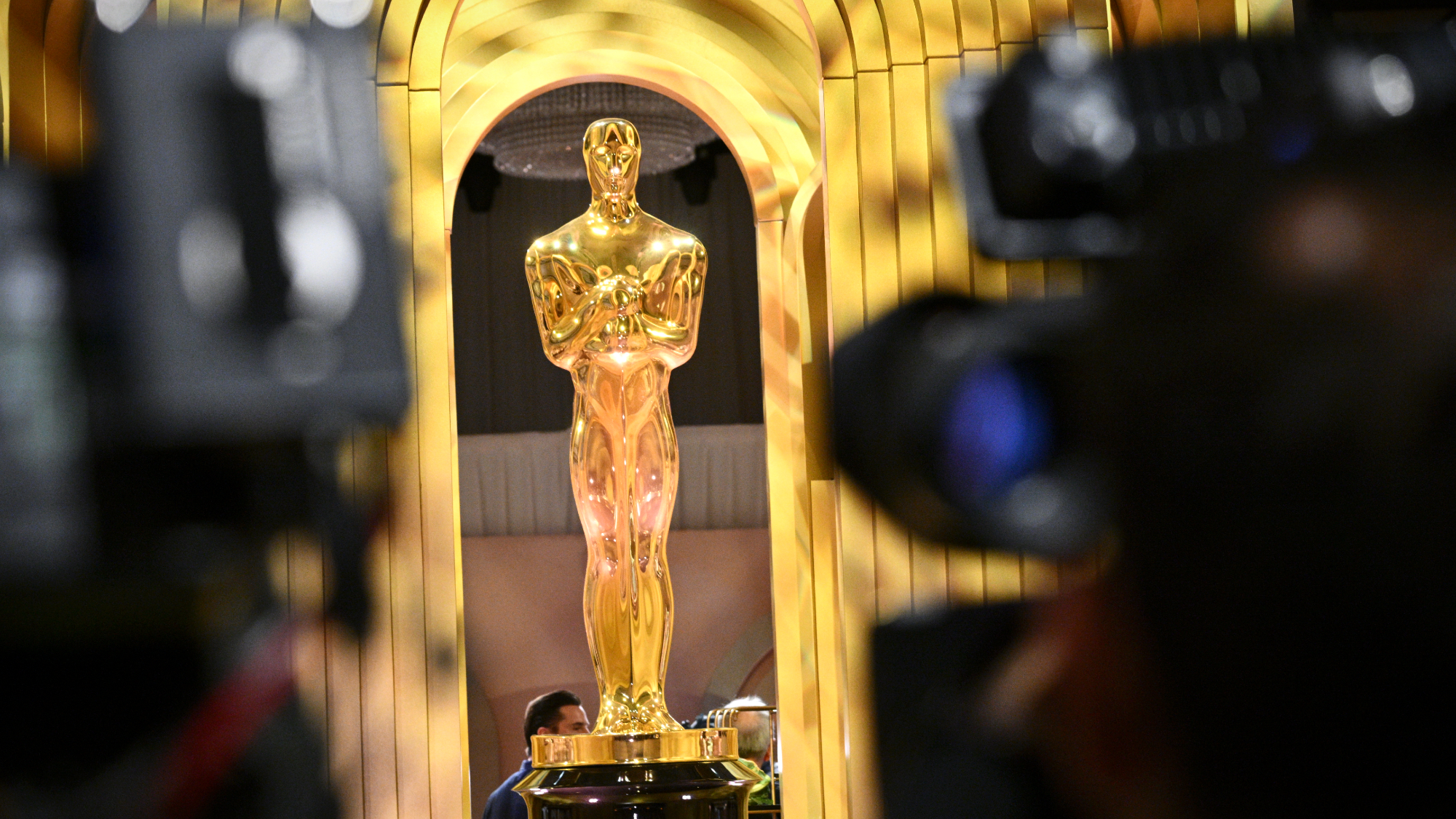The US-China trade war comes to Hollywood
China's retaliatory restrictions on foreign films will hurt the US film industry

A free daily email with the biggest news stories of the day – and the best features from TheWeek.com
You are now subscribed
Your newsletter sign-up was successful
The US-China trade war is hitting Hollywood – right before the crucial summer blockbuster season. Last week, the Chinese government announced that it would cut the number of American films allowed to be screened in the country, the world's second-largest movie market, according to Statista.
A statement by China's National Film Administration said the as-yet unspecified decrease in the quota – which was raised to 34 foreign films per year in 2012, according to Variety – reflects audience preferences, suggesting the Trump administration's decision to "abuse tariffs on China" has reduced moviegoers' appetite for Hollywood releases.
An outright ban on American films had been mooted as a possibility by authoritative Chinese social media accounts, said Bloomberg, so the decision only to "moderately reduce" the quota means Hollywood has avoided a worst-case scenario. Even so, shares in US entertainment companies fell after the announcement. But Trump had few words of consolation for Hollywood – asked about the announcement, he said: "I think I've heard of worse things."
The Week
Escape your echo chamber. Get the facts behind the news, plus analysis from multiple perspectives.

Sign up for The Week's Free Newsletters
From our morning news briefing to a weekly Good News Newsletter, get the best of The Week delivered directly to your inbox.
From our morning news briefing to a weekly Good News Newsletter, get the best of The Week delivered directly to your inbox.
Mass market
"The Fugitive" was the first US film approved for release in China, in 1994, and since then the quota of foreign films has steadily increased, most recently in 2012 by then-US vice president Joe Biden. Under that agreement, 25% of net revenue is paid to the foreign studio owners by the state-owned Chinese film distributors. A reduction in that quota will be a blow to the profits of Hollywood studios, which are already suffering due to competition from streaming services, as well as industrial unrest and the lingering impact of the Covid pandemic.
Hollywood films account for only 5% of overall box office receipts in China, said Reuters, but the size of the market means that success in China can be enormously profitable. Action franchises have the most to gain: in 2024 "Alien: Romulus" grossed approximately $110 million (£86 million) in China, accounting for about 30% of its total global gross, and the year's biggest US release in the country was "Godzilla x Kong: The New Empire", which grossed $132 million (£106 million). "These numbers are a lot more than rounding errors when it comes to calculating a film's success", said Vanity Fair.
Homegrown hits
China has been building up its domestic film industry, which now makes up 80% of box-office revenue, said Reuters, and homegrown works have outshone foreign films in recent years. Most notably, "Ne Zha 2", released in January, has made $2 billion (£1.5 billion) in China alone, becoming the highest-grossing animated film in history and the first animated film in history to make more than $2 billion (£1.5 billion) globally. It could be "20 or 30 years before any American film pulls off the same feat", said The Telegraph's film critic Tim Robey. And "Ne Zha 2" isn't a one-off: China's overall 2025 box-office grosses have already surpassed those in the US.
Like the film industry as a whole, Chinese studios are facing competition from streaming services, as well as micro-dramas – shows made up of bite-sized episodes designed for vertical viewing on mobile phones. But while only about 35% of American and European consumers say they want to watch movies at the cinema, 78% of Chinese viewers still prefer the big screen. So, when a film like "Ne Zha 2" does well "it hits really big", said Robey. For Hollywood executives looking to get a piece of the action, it remains to be seen if they will be left on the outside, looking in.
A free daily email with the biggest news stories of the day – and the best features from TheWeek.com
-
 Health insurance: Premiums soar as ACA subsidies end
Health insurance: Premiums soar as ACA subsidies endFeature 1.4 million people have dropped coverage
-
 Anthropic: AI triggers the ‘SaaSpocalypse’
Anthropic: AI triggers the ‘SaaSpocalypse’Feature A grim reaper for software services?
-
 NIH director Bhattacharya tapped as acting CDC head
NIH director Bhattacharya tapped as acting CDC headSpeed Read Jay Bhattacharya, a critic of the CDC’s Covid-19 response, will now lead the Centers for Disease Control and Prevention
-
 Microdramas are booming
Microdramas are boomingUnder the radar Scroll to watch a whole movie
-
 The biggest box office flops of the 21st century
The biggest box office flops of the 21st centuryin depth Unnecessary remakes and turgid, expensive CGI-fests highlight this list of these most notorious box-office losers
-
 The 8 best superhero movies of all time
The 8 best superhero movies of all timethe week recommends A genre that now dominates studio filmmaking once struggled to get anyone to take it seriously
-
 Josh D’Amaro: the theme park guru taking over Disney
Josh D’Amaro: the theme park guru taking over DisneyIn the Spotlight D’Amaro has worked for the Mouse House for 27 years
-
 Golden Globes affirm ‘One Battle,’ boost ‘Hamnet’
Golden Globes affirm ‘One Battle,’ boost ‘Hamnet’Speed Read Comedian Nikki Glaser hosted the ceremony
-
 The most anticipated movies of 2026
The most anticipated movies of 2026The Week Recommends If the trailers are anything to go by, film buffs are in for a treat
-
 Oscars jump to YouTube after decades at ABC
Oscars jump to YouTube after decades at ABCSpeed Read The awards show will be broadcast worldwide on YouTube starting in 2029
-
 Son arrested over killing of Rob and Michele Reiner
Son arrested over killing of Rob and Michele ReinerSpeed Read Nick, the 32-year-old son of Hollywood director Rob Reiner, has been booked for the murder of his parents